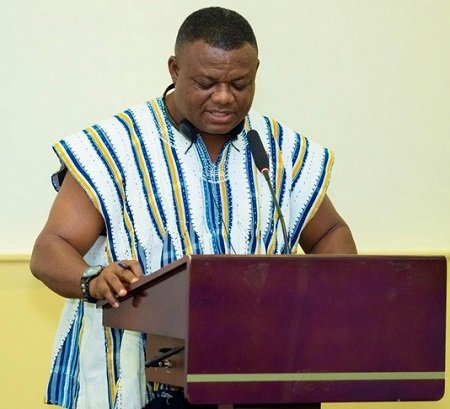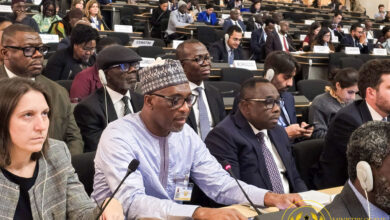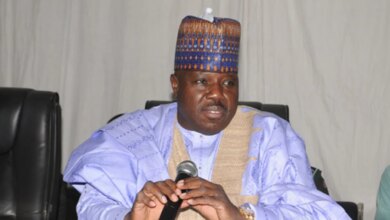Harmonising and Improving Statistics in Ghana: The Role of Statistical Players

In today’s data-driven world, statistics have become an indispensable resource for shaping national development, guiding policy decisions, and ensuring accountability. In Ghana, the importance of credible and harmonised statistics cannot be overstated. From planning infrastructure projects and monitoring economic growth to tracking health outcomes and assessing educational progress, statistics serve as the backbone of evidence-based decision-making.
Yet, the effectiveness of statistics depends not only on their collection but also on how well they are harmonised, coordinated, and improved to meet national and international standards.
This is where the role of statistical players becomes central. Ghana has a wide ecosystem of actors responsible for generating, managing, and using statistics, including the Ghana Statistical Service (GSS), Ministries, Departments and Agencies (MDAs), Metropolitan, Municipal and District Assemblies (MMDAs), research institutions, academia, civil society organisations (CSOs), and development partners. Each plays a unique role, but their collective impact depends on collaboration, coordination, and alignment.
The Need for Harmonised Statistics
Harmonisation in statistics refers to ensuring consistency, comparability, and coherence in data across different institutions and sectors. Without harmonisation, figures on the same subject may vary across institutions, creating confusion for policymakers, researchers, and the general public.
For example, if different agencies report different unemployment rates or varying inflation trends, it undermines trust in official statistics and affects policy responses.
Harmonisation also ensures that Ghana’s statistics align with international standards such as the UN Fundamental Principles of Official Statistics, the African Charter on Statistics, and the Sustainable Development Goals (SDGs) framework. Meeting these standards allows Ghana to report credible data internationally, benchmark progress with peers, and attract investment and development assistance.
The Role of the Ghana Statistical Service (GSS)
The Ghana Statistical Service stands at the heart of Ghana’s statistical system. As the central authority, GSS provides leadership in data collection, standard-setting, and coordination. Over the years, it has introduced modern frameworks such as the National Strategy for the Development of Statistics (NSDS) and the Statistics Act, 2019 (Act 1003), which reinforce its mandate to coordinate all official statistics in the country.
The GSS also plays a critical role in capacity building, ensuring that MDAs and MMDAs adopt uniform methodologies and classifications. Through initiatives such as the Annual Household Income and Expenditure Survey (AHIES) and the Population and Housing Census (PHC), the Service provides vital information for planning and development.
More importantly, GSS increasingly collaborates with other actors to promote data interoperability, making datasets easier to share and integrate.
Role of MDAs and MMDAs
While GSS provides leadership, Ministries, Departments and Agencies, together with MMDAs, remain essential data producers. For instance, the Ministry of Health generates health indicators, the Ministry of Education produces data on enrolment and learning outcomes, while the Bank of Ghana provides financial and monetary statistics.
MMDAs, on the other hand, generate local-level data critical for planning community infrastructure, healthcare delivery, and social services.
The challenge has been that many MDAs and MMDAs historically worked in silos, leading to duplication and inconsistency in datasets. However, the role of these institutions in harmonising statistics is becoming increasingly important. By aligning with GSS standards and embracing integrated data systems, MDAs and MMDAs can ensure that the information they produce feeds seamlessly into the national database.
Role of Academia and Research Institutions
Universities and research centres are vital in strengthening Ghana’s statistical system. They not only produce independent research but also serve as training grounds for statisticians, data scientists, and economists. Research institutions complement official statistics by providing experimental data, conducting policy impact evaluations, and exploring emerging issues such as climate change, digitalisation, and social inequality.
Their role in harmonisation lies in ensuring that methodologies used in academic research align with national and international standards, and that findings are shared openly with policymakers and the GSS for validation and integration.
Civil Society and Citizen-Generated Data
Civil society organisations (CSOs) and non-governmental organisations (NGOs) are increasingly involved in data generation, particularly on social issues such as gender, environment, and community development. Citizen-generated data initiatives provide valuable insights that may not be captured in official surveys — for example, data on female genital mutilation (FGM), informal sector employment, or local environmental risks.
These actors play a complementary role in improving statistics by filling data gaps and amplifying voices of marginalised communities. However, their work must be harmonised with the official system to ensure quality, comparability, and policy relevance.
Partnerships between CSOs and GSS, supported by frameworks like the Copenhagen Framework on Citizen Data, are paving the way for more inclusive and reliable data ecosystems.
Development Partners and International Agencies
Development partners such as the UN, World Bank, and African Development Bank have long supported Ghana’s statistical development. Their contributions include funding, technical assistance, and knowledge transfer.
For instance, the World Bank’s Data for Development Project has provided resources for modernising Ghana’s data infrastructure. Harmonisation requires that the support of development partners aligns with national priorities and strengthens — not duplicates — the work of existing institutions.
Towards a Stronger Statistical Ecosystem
To fully harness the role of statistical players, Ghana must invest in a coherent national statistical system. This involves:
- Strengthening the coordination role of GSS.
- Ensuring MDAs and MMDAs adopt uniform standards.
- Building capacity through training and technology adoption.
- Encouraging academia and research institutions to align methodologies with national needs.
- Formalising partnerships with CSOs for citizen-generated data.
- Leveraging international support strategically.
Moreover, the use of digital technologies and big data offers Ghana an opportunity to modernise its statistics. From satellite imagery in agriculture to mobile phone data for migration patterns, innovative approaches can complement traditional surveys.
Why Harmonisation and Improvement Are Necessary
Decision-Making: Reliable, comprehensive, and harmonised data is essential for informed decision-making by policymakers, economic, and social players across Ghana.
Development Programmes: Evidence-based data is crucial for developing, implementing, and monitoring programmes aimed at tackling challenges like poverty. Without harmonisation, specific indicators to track developmental progress become difficult.
Coordination: The need for statistical data cuts across geographical areas, sectors, and administrative districts, necessitating strong coordination and standardisation among all data producers.
Capacity Building: Building capacity improves harmonisation in data production and supports regional bodies like the African Union (AU) and ECOWAS to enhance advocacy, coordination, and data dissemination.
Strategic Planning: The national statistical system should develop strategic plans such as a Corporate Plan to guide institutional transition, build capacity, and attract professionals in the production of official statistics.
Data Science: Embracing data science and machine learning to automate processes, improve quality monitoring, and enhance the timeliness and accessibility of statistical products is crucial. Institutions must intensify these efforts to strengthen harmonisation across the data ecosystem.
Conclusion
Harmonising and improving statistics in Ghana is not the responsibility of a single institution but a collective effort by all statistical players. Each actor — whether government, academia, civil society, or development partner — has a role to play in building a system that produces reliable, timely, and inclusive data.
When harmonised, these efforts ensure that Ghana not only strengthens evidence-based policymaking but also meets global reporting obligations.
Ultimately, a robust statistical ecosystem empowers Ghana to plan effectively, monitor progress, and respond to the complex challenges of development in the 21st century. The role of statistical players is therefore not just technical — it is foundational to the nation’s growth, stability, and prosperity.
Harmonising data should be intentional!
The writer is a Senior Statistician
BY: VICTOR BOATENG OWUSU
www.ghanaiantimes.com.gh
GHANAIAN TIMES — FRIDAY, OCTOBER 24, 2025 | FEATURES
🔗 Follow Ghanaian Times WhatsApp Channel today. https://whatsapp.com/channel/0029VbAjG7g3gvWajUAEX12Q
🌍 Trusted News. Real Stories. Anytime, Anywhere.
✅ Join our WhatsApp Channel now! https://whatsapp.com/channel/0029VbAjG7g3gvWajUAEX12Q






